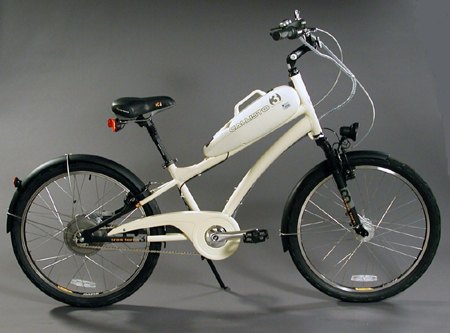Volt Birth Watch 44: Batteries Won't Be Fully Ready by 2010
TTAC commentator Bunter1 sent us a link to Design News: "Accelerating Engineering Innovation." And that's what GM's doing with its oft-delayed, highly-touted electric – gas plug-in hybrid Hail Mary (a.k.a. the Chevy Volt). As anyone who follows such things knows, it's the batteries, stupid. It's a point well worth repeating. "To an engineer, it looks obvious. Gasoline packs 80 times more energy per kilogram than a lithium-ion electric vehicle battery. It holds 250 times more energy than a common lead-acid battery. So, it’s a no-brainer. Batteries can’t possibly deliver the energy needed to power the future of the auto industry, right?" Readers tempted to shout "Right!" are, obviously, corrected. Scribe Charles Murray places the effort to create a commercially viable electric vehicle somewhere between implausible and very, very difficult. The big news is text-embedded: the director of the Materials and Processes Lab. at GM Research Labs is not cool with his bosses' 2010 timeline for Volt production. “The big risks we have to overcome if we expect to see widespread implementation are quality, reliability, and durability,” says Mark Verbrugge. “We’d like to get at least three to four years (of testing) on these batteries.” But won't. And what does THAT tell you?
More by Robert Farago


































Comments
Join the conversation
What a joke. All automakers use real world customers for testing. Who else can break a bowling ball? Nothing has more power than Petroleum? Really now. Helium 3. Reason for the Russkies claiming the moon. And China wanting to get into the space chase.... Google it.
Picking up on Paul Niedermeyer, above, cutting weight way down as in the hypercar (google it) would further improve the stats for electricity. Or any other alt fuel.
Okay who cares how much energy density oil has vs electricity if all I need is a commuter car with a 50 mile range? I mean if it costs me $7 vs $67 a week to drive back and forth to work - who cares? YOU might care if you like driving big vehicles or muscle cars or if you have a set of expectations vastly different than mine but my point is that tlaking about energy density oil vs batteries is comparing oranges to apples. The important points in an EV or plug-in hybrid is how long will the batteries last vs how expensive will they be to replace? So far Toyota has a neglible battery failure rate from everything I have read. I mean 250K on their hybrid batteries and still going. I mean over 100K miles on their full-on EV RAV-4 from the last decade and still moving along just fine. Toyota has a good rep with the consumer. GM's rep would fall further and faster if they released a bad quality plug-in. They have to be better than the consumer's expectations to win back the consumer's trust and market share. I know dozens of people who never take their small or old or thirstier or uglier cars anywhere outside of town. They drive their better, newer, favorite, faster, larger, more comfortable car when they travel. Why would this be any different if we had some EVs in the mix. Make that short distance car an EV. Meanwhile some readers here are commenting about biofuels vs electrics? Electrics are easy. You pay the entry fee to have some PV on your roof and expand it as your budget allows. Your cost to "fuel" your car goes from minimal to none if your PV system is large enough. Yeah, I'm saying make electricity to sell back to the local utility and then buy it back at night to charge with. No moonlight PV possible anytime soon right? GM has to get this car right b/c they are first in this field for a change. The Japanese are hot on their tails and I have no doubt that Toyota or Honda will offer something comparable if not better shortly after the Volt comes out in 2010. GM has to get it right or the news of their failure (shoddy cars with bad technology) will make much bigger headlines than all the green-washing the Volt publicity has ever landed them. They want to be first to market and capture market share in plug-in hybrids and they can't do it with a crummy car. They MIGHT also have access to oil consumption and production predictions that reach decades into the future and they might be seeing something coming that us the average consumer can't see for free on news website or some other site like TreeHugger.com People around me have be saying all my life that the domestic car manufacturers have been in bed with big oil for deacdes. Why wouldn't big oil tell Detroit that they need to start shifting away from oil towards some other type of technology that big oil holds the patents to like large format batteries aka the one that Toyota put in the RAV-4. I think they were sued along with Panasonic over the battery design by an oil company who held the patent... You might buy cars every 2 years but the people I know around here buy cars and expect them to last a decade (10-12K miles per year). With a long term ownership and uncertain gas prices alot of folks I know are considering downsizing at their next purchase time and GM wants to have a vehicle(s) that people want to buy. I'm sure they'd like to offer big vehicles and small vehicles but we know how well their small vehicle production economics treat them. The Volt is a cool looking car but far too large for my taste. All I see is extra weight that could be cut with a gain in efficiency. I'd rather have a modest Civic/Astra/Versa/Jetta wagon/Mazda3 sized vehicle with lots of weight saving designed into it.